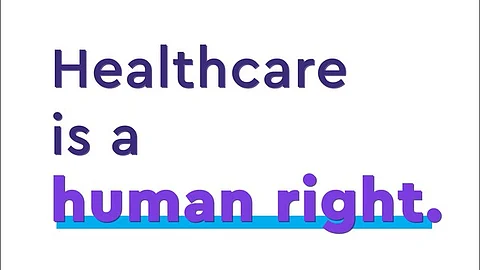

Universal Health Coverage (UHC) is a crucial concept in the healthcare field. It asserts that healthcare is a fundamental human right, and it encompasses all essential health services, such as promotion, prevention, treatment, rehabilitation, and palliative care. The goal of UHC is to ensure that individuals can access these services without facing financial hardships. Essentially, UHC aims to provide comprehensive healthcare to everyone, regardless of their financial status.
By every implication, the 191 UN member states hope to achieve financial risk protection and equity in access to quality healthcare services for their citizens by the year 2030. But the question remains: Is the world on the path to achieving this goal? If yes, What about Africa, the land of lingering possibilities?
The 2022 World Health Organization (WHO) African Region report highlighted an improvement in healthy life expectancy, which increased from 46 years in 2000 to 56 years in 2019. However, the achievement of Universal Health Coverage (UHC) is still being hindered due to underfunded primary healthcare (PHC) systems and a significant informal sector where many individuals lack insurance coverage. These factors contribute to the slow progress in realizing UHC in the region.
With only 5.3% of Nigeria's approved 2023 budget for fiscal consolidation and transition allocated to the health sector, and only Lesotho having the highest allocated percentage (11.27) from the 2019 health expenditure of countries in Sub-Saharan Africa, it is no longer news that the continent is falling short of Abuja declaration in which each member state pledges to allocate at least 15% of their annual budget to the enhancement of the health sector.
To achieve UHC, it is crucial to prioritize adequate funding of the primary healthcare systems. PHC is projected to contribute significantly to the expected health gains related to SDGs and cover more than 90% of health services under comprehensive UHC, making it a critical component of the healthcare system.
Moreover, the African continent can learn from Kenya's new insurance plan, which focuses on providing coverage to the informal sector. Under this policy, households are required to pay a yearly fee of $5 in order to access healthcare services. Additionally, fees for local and secondary-level healthcare facilities are waived for these individuals. Implementing a similar approach could help ensure the informal sector in other African countries, ensuring that they have access to essential healthcare services.
If we are to reach our goal of achieving universal health coverage by 2030, we must commit to investing in and scaling up proven solutions. This means making more and smarter investments in the foundations of health systems, with an emphasis on primary health care, essential services and marginalized populations.
UN Secretary's Message on International Universal Health Coverage Day, 2021
Putting everything into perspective, this program has significantly improved access to healthcare, resulting in over 1.6 million additional hospital visits during the first year of the pilot phase. The program has since been extended to all 47 counties in Kenya, with the addition of over 200 community health units and the recruitment of 7,700 community health volunteers and 700 healthcare workers.
Achieving a robust primary healthcare system is possible but requires adequate financing, availability of sufficient healthcare workers, proper insurance coverage for the poor, and improved access to quality healthcare in rural and remote areas.
